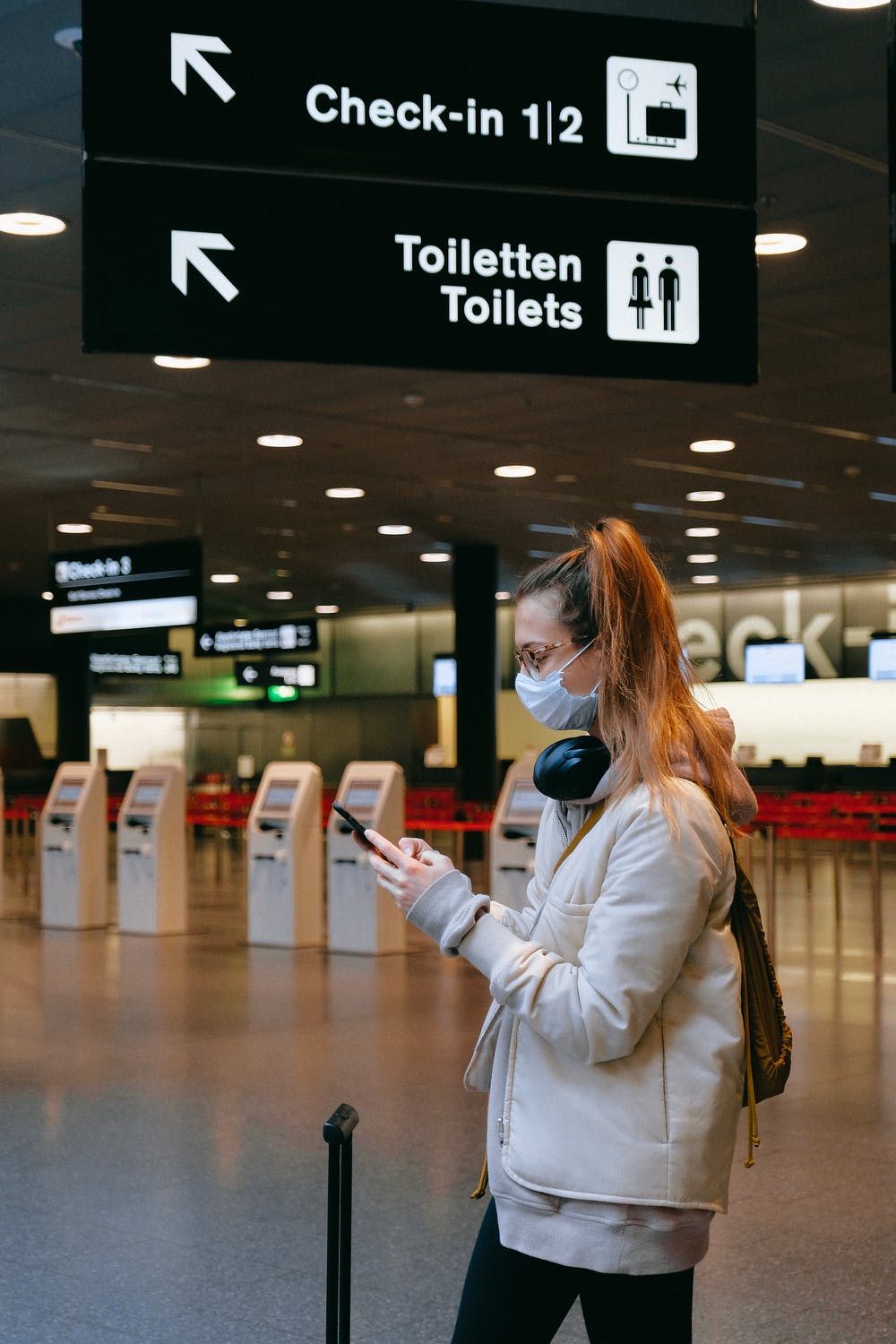“When can we travel again?” Avid travellers want to know!
Let me gaze into my crystal ball……and…..well, she doesn’t even know!
COVID-19 locked us down to self-isolate and quarantine in our homes for the sake of public health. Stay at home orders were enacted all over the world, and international borders closed to outside travellers to “slow the spread” and “flatten the curve”. Since the Canadian government closed the border to international travel in March, we have all been cooped up in our homes, juggling the realities of working from home, homeschooling kids, and appreciating a whole lot of overall togetherness!
But the desire to escape and connect with others is innate among us, and we crave connections with others. We want to move forward. We want a change of scenery. And we want to have the trip we had planned but didn’t get.
The world is starting to open up again, and it naturally begs the question back to us,
“When can we travel again?“
And the answer is vague. “It depends.” And it really depends on so many factors.
Until the Canadian government eases its border restrictions, the answer is a bit easier because we know we cannot travel. However, when the Canadian borders begin to open, it becomes a bit more complicated. As other countries start to ease their restrictions in allowing travellers to enter, the world is cautiously beginning to open up.
It is coming sooner and sooner with each passing day.
But, with so much uncertainty still ahead with this virus, and the risks of a second wave, everyone is navigating through this time cautiously and carefully. Actions will be measured with guidelines improving as needed. The world is going to be in a post-disaster state as we get through this next stage, and there will be a mixed sense of ruin and opportunity. Not everything will be open at full capacity. Not everything will be back to normal as it was “pre-COVID.” But the opportunities will be there. And while the experience may not be what you may have envisioned beforehand, it will not be any less of any experience.
Where can we travel?
COVID-19 didn’t hit each country equally. Some countries fared better than others. Countries with low cases overall will be eager to welcome travellers, and the risk will be low. Stay updated via the Government of Canada website for up-to-date travel advisories.
Smaller countries, and off the beaten path destinations will be of interest because there simply won’t be as many people travelling there. There will never be a better time to explore some of the other smaller, lesser-known Caribbean islands for your winter vacation next year. Belize, Aruba, Grenada, The Bahamas, Barbados and even Jamaica may be on your radar for your next trip. Cuba has been a long-standing favourite for Canadians, and it will lead the list for winter vacation options for next year. It led a strong response to the COVID-crisis and it emerged out of the woods quicker than other popular tropical destination favourites.

As long as the Canada-US border remains closed to non-essential travel, the United States is not an option for Canadians even as Orlando, Disney World, Las Vegas and other vacation hot spots begin to open for business. But when the border re-opens to us, different states will have varying levels of guidelines for travellers, so it’s essential to pay close attention to where you are heading for specific details.
What can we expect?

Masks. You might as well begin to look for some cute ones as they will be a part of our travel lives and a necessary part of the travel experience. As long as the virus is active, the risk is present. Non-medical masks and face coverings will be required in public places where large numbers of people gather, and physical distancing measures are not feasible.
Temperature screening before boarding and/or upon arrival. Protocols will be in place to ensure the accuracy of the tests and to prevent false positives. However, the possibility of denied boarding due to high temperature is a real risk, so if you are not feeling well, you should not be travelling.
Contactless service – “personal touch” in customer service is sacrificed for health and safety as things will move to contactless service as much as possible to reduce physical contact and touchpoints. Online check for flights and utilizing electronic boarding passes instead of printed boarding passes will be the norm. Travellers may be encouraged to check into their hotel rooms from their smartphone via the travel supplier app to minimize contact with the front desk staff. Onboard options on flights will be limited, and room service will be grab and go options dropped outside your door.
Goodbye to gluttony. No more continental breakfasts or all-you-can-eat buffets, at least for the time being. The convenience of continental breakfast and breakfast buffets will be eliminated or revised. The “all-you-can-eat buffet” experience may be a casualty of COVID, as the very nature of its existence is a petri dish for germs to spread easily and quickly. The buffet experience will need to evolve and transform into a different experience altogether. It may be “assisted-service”, “family-style”, or “counter-service” rather than self-serve, and the overall choice for options may be limited. For buffets to survive in a post-COVID world, the concept will be redesigned in experience to ensure safety first. Even then, will consumers accept buffet options then? Only time will tell us how buffets will evolve from what we had associated with one of the highlights of vacation indulgence.

Germophobes rejoice! Enhanced safety protocols and procedures are now the mainstays for businesses to ensure both consumer and employee confidence and safety. Were you one who watched all the disturbing videos of blacklights highlighting the lack of cleanliness in 5-star hotels, or wiping down the airplane seat tables and everything around you? Well, now you can be confident knowing that it will likely be the safest time for you to travel! Travelling now has never been cleaner than what it will be going forward. Sanitation frequencies in public and high traffic areas such as airplanes, lobbies and other common areas will be increased. Daily housekeeping at hotels will be eliminated, or frequencies decreased to reduce contact during your stay. Housekeeping and room sanitation protocols will be revised to increase the level of sanitation in between guest stays to minimize the risk for guests and staff during your stay.
Read the fine print. Covid-19 is now identified as a known risk by travel insurance providers. As with any known risk, travel insurance does not cover any costs related to it. This has always been the case with travel insurance, and this situation is no different from any other pre-existing conditions that preclude travel insurance coverage. The two most significant travel insurance components most travellers need to consider are trip cancellation and emergency medical coverage. As such, they should always be a part of all conversations any time you are discussing travel plans.
And while the world starts to re-open, the tourism industry will be ready to welcome guests with open arms among new and improved procedures. But everyone will have a different comfort level with how they want to proceed with travel plans and it is vital to recognize that.
So then with all this going on,
“Is it worth it?”
It may sound like a lot of change, but flexibility and adaptation have been our secret superpower in our lives these past few months. This is no different. Post-9/11, many changes were implemented to ensure consumer confidence and safety for all to be comfortable flying again. Some of these changes have been a permanent part of the travel experience. Some changes were relaxed as time went on. Whether all of this is a “temporary abnormal” with necessary compromises for the time being or if this will be a “new normal” going forward, we will acclimatize as needed.
At the end of the day, only you will know what is right for you and your family and what compromises you are willing to take. Each person and each family’s situation will be unique. But there is hope (and plenty of opportunities) for those who want to travel.
While the world around us has changed, we ourselves have not changed. The desire to travel is still there, and there is likely an internal pent-up push to get away after being isolated for several months. This is a perfect opportunity for us to rethink and reshape our expectations of travelling going forward, how we travel and why we travel. We can look to travel with intention, with meaning and with purpose and evaluate why we crave travel for ourselves and our families.
“Never underestimate the power of travel and how it can open your mind.”
Have questions about travelling in a world with COVID? Consult with a travel expert who can advise you with the latest information available for your needs. And support your local travel advisor by booking your next trip with a travel agency. I guarantee you they will need your support and will be happy to help you navigate your options in a world of continually changing information. Among many other industries deeply affected by the virus, small local travel agencies and independent travel advisors (like myself) have had our businesses decimated by the effects of the travel bans enacted to stop the spread of the virus. When you are ready to travel again, book your trips with a travel advisor. Help support local travel agencies by allowing us to help you with your travel plans to ensure you have the best experience you can!





